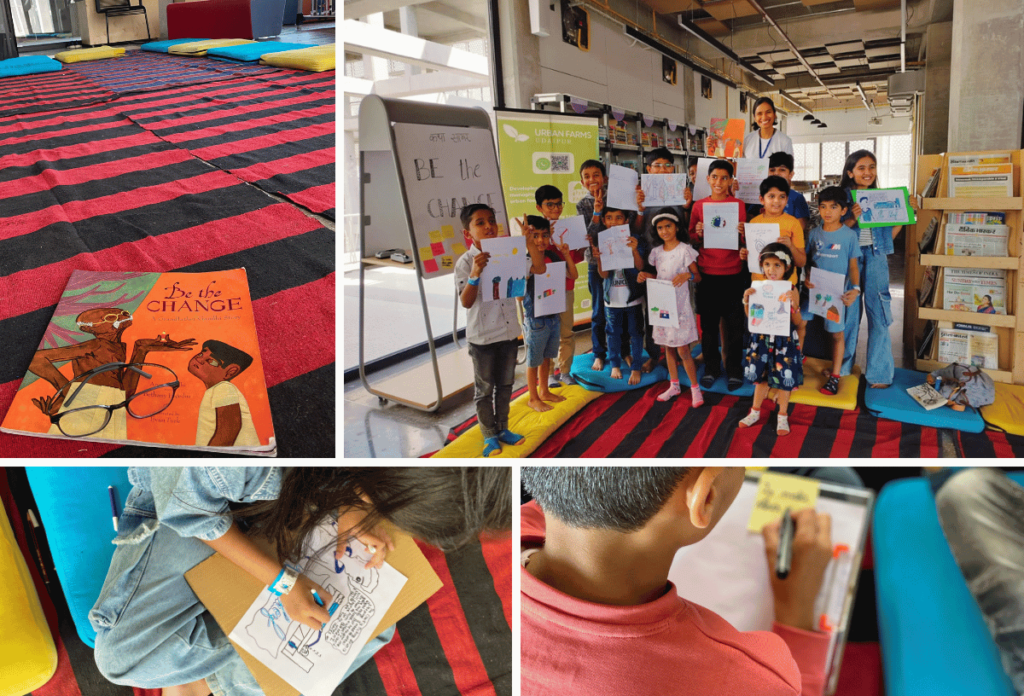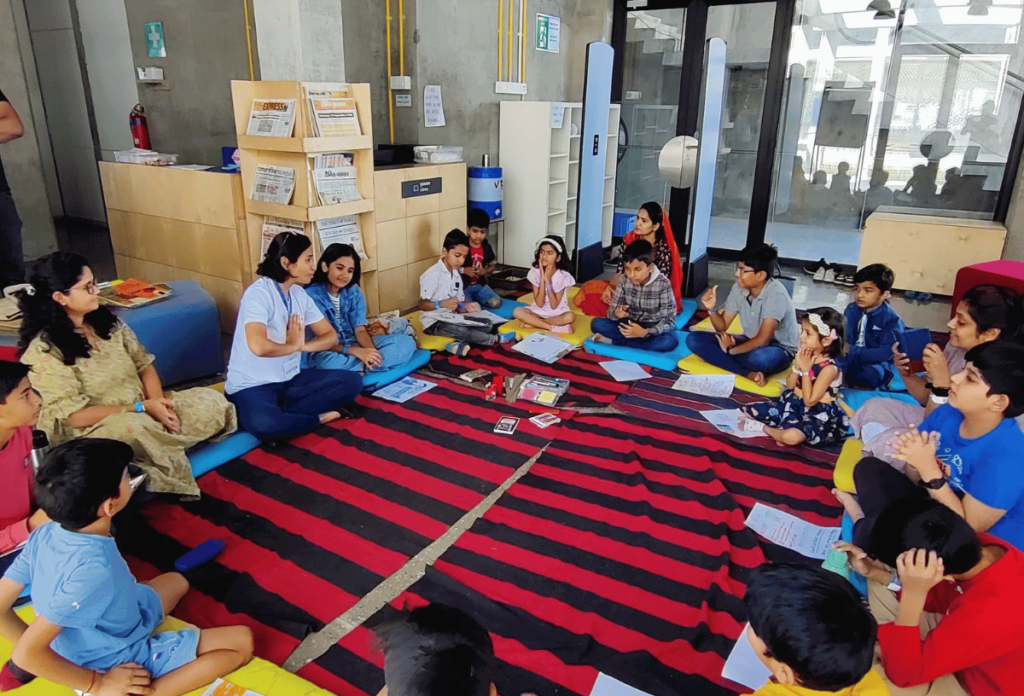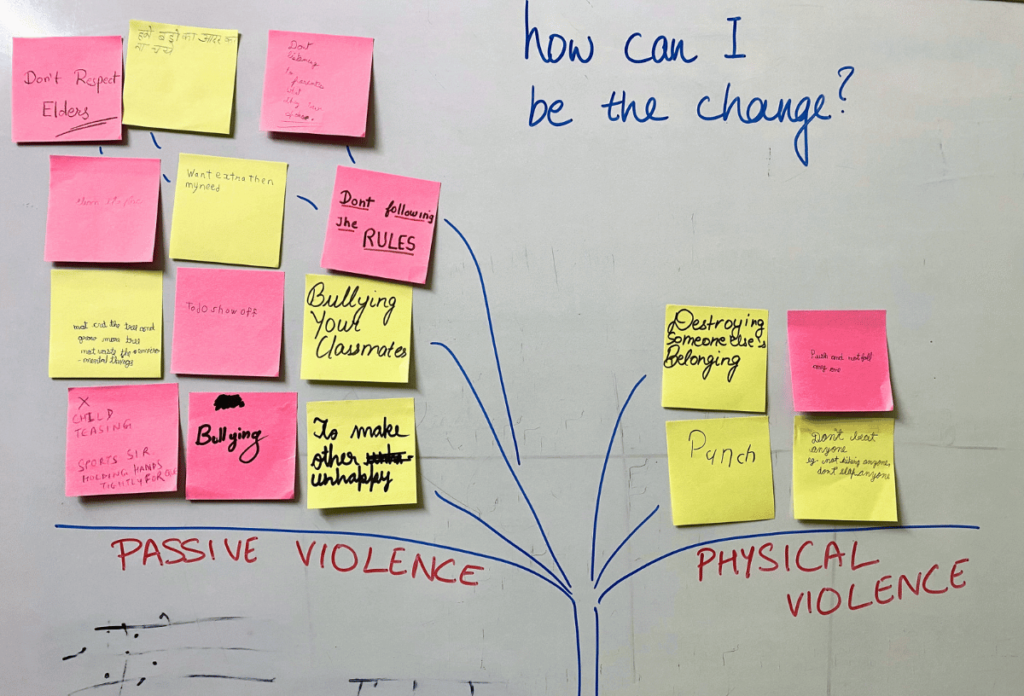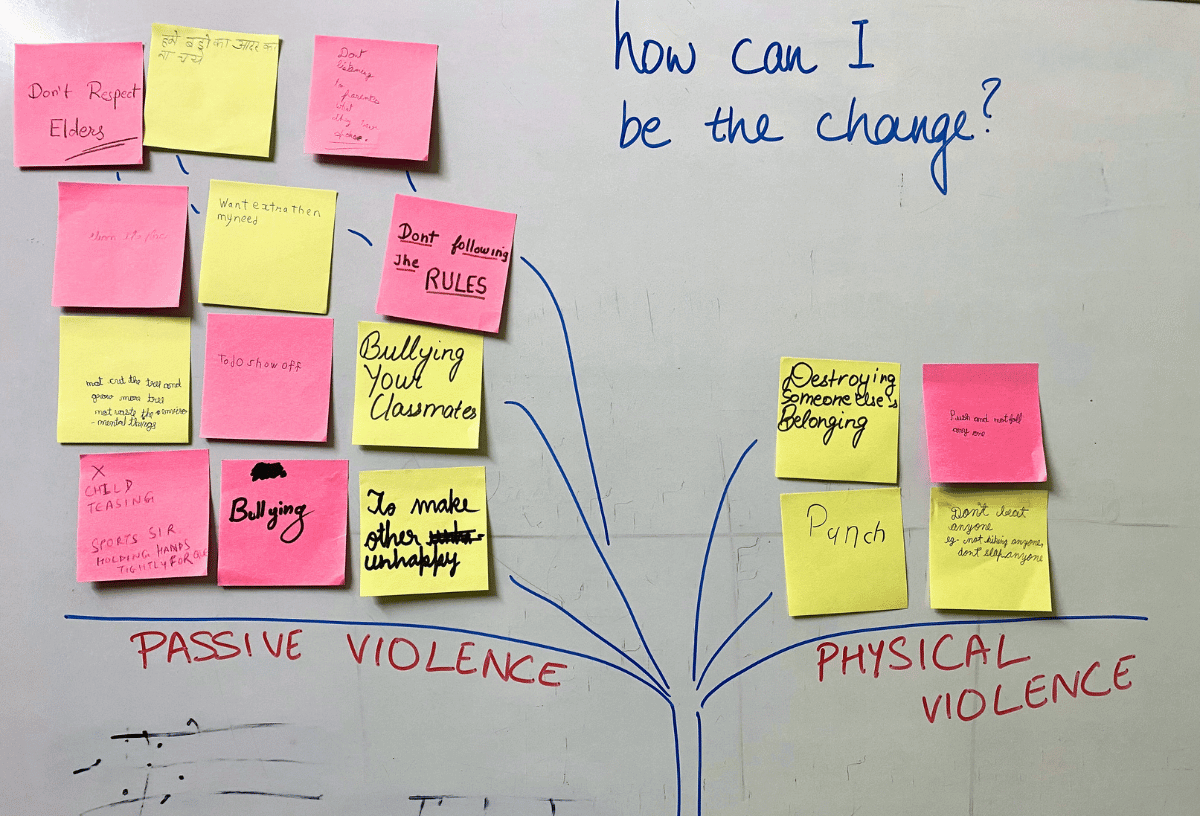Last month, I held a book reading session with children at Katha Sagar, a monthly literary event at The Third Space Library. The book I chose was ‘Be The Change’ written by Arun Gandhi, (grandson of Mahatma Gandhi) from his time living in Sevagram Ashram.

I was gifted this book during a visit to Sabarmati Ashram by a dear friend and it has been a family’s favourite ever since we first read it. It is a beautiful and powerful personal narration. Little Arun is struggling to understand and stay true to his vow of ‘not to waste anything’. How can throwing away the tiny end of a pencil be a form of violence? Slowly, with the help of his grandfather, he understands how every wasteful act, no matter how small, affects others.
While the story is old, the message is timeless and required today more than ever. How can taking an extra helping of pudding hurt anyone? How can wastefulness lead to violence?
All the events at Urban Farms have a deeper vision of planting seeds of change, whether it is an event on the farm or off the farm. After the story, I invited every child to think about how can they make an impact in their little ways. How can they embody Gandhi ji’s eternal message to the world: Be the change you wish to see in the world.
Together, we imagined the ripples each act can have and how that one small act can lead to a big change.

What touched me most was when we made the tree of violence.
In the book, to help Arun understand different forms of violence – both physical and passive; Gandhi ji had asked him to make a tree with two branches. One for physical violence (like kicking or pushing someone or breaking something) and one for passive violence (like teasing; taking more than his share, or being jealous).
After the book reading, we did the same. Children wrote an act of violence that they might have been involved in or they might have witnessed. I was happy to see their awareness and understanding of violence (esp different forms of passive violence that the story touches upon).
And I was sad to see that our tree, just like that of Arun Gandhi’s in the story, was heavier on the passive violence side.

Physical violence is easy to identify and address but it is passive violence that we need to be very aware of. Especially as parents, educators, and caretakers, we need to be able to identify and address the various forms of passive violence before it causes deeper harm. We may be victims, we may be perpetrators or we may be a witness; to me, the exercise of the tree of violence was a wake-up call to raise my awareness and stand up to violence every time.
The day after is Diwali, the festival of light. I wish that we are all able to tap into the light of truth within and Be The Change.
दीपो ज्योति परं ब्रह्म दीपो ज्योतिर्जनार्दन:। दीपो हरतु मे पापं संध्यादीप नमोऽस्तु ते।।
The light of truth will always end the darkness of evil.

